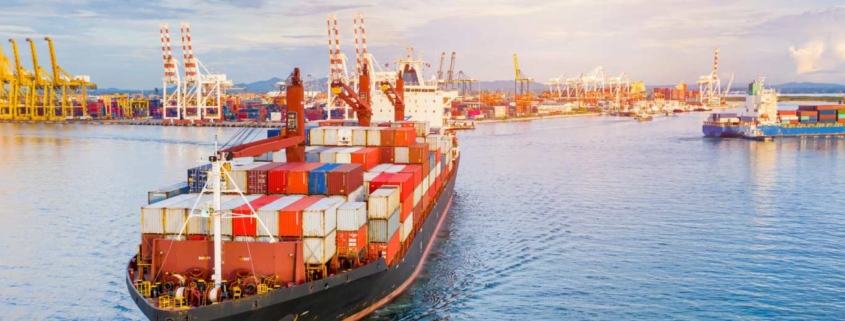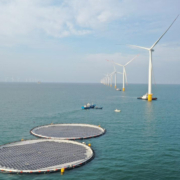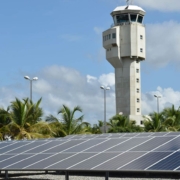Port Sustainability: Key Strategies for Reducing Emissions
The urgency to combat climate change and reduce carbon emissions has propelled sustainability to become a central focus in various sectors. Specifically, ports, given their intense activity and association with transport emissions and cargo handling, are under scrutiny to implement cutting-edge solutions to mitigate their environmental impact. Below, we present the main strategies adopted:
Port sustainability according to European Union (EU) Standards
The EU stands out in promoting sustainable practices and monitoring compliance among its Member States. In the port sector, adhering to standards such as Eurocode 3 (EN 1993) for bollards or the recommendations of PIANC’s Working Group 33 is essential for ecologically responsible management.
Adoption of Clean Energy for Port Sustainability
Incorporating renewable sources and electrifying operations marks a giant step in emissions reduction. Ports invest in solar panels and wind turbines to generate sustainable electricity, which in turn powers equipment such as cranes and lighting systems. Additionally, propelling ships through electric or hydrogen systems minimizes emissions of polluting gases.
Smart Logistics and Waste Management
Adopting advanced technologies and management systems optimizes port operations. By improving transport routes, consolidating cargo, and reducing wait times, greener operations are achieved.
Ecological Infrastructure
Building and renovating port facilities with a sustainable focus is crucial. This involves using environmentally friendly materials, efficient lighting systems, and construction techniques that respect the ecosystem.
Preservation of Natural Spaces
Compliance with the EU goes beyond operations. It is essential to promote green areas and protect coastal ecosystems. These spaces not only purify the air and conserve biodiversity but also serve as recreational and educational areas for communities.
Adopting EU requirements and safeguarding natural areas in proximity to ports has a dual benefit. It not only fulfills an ecological responsibility, ensuring cleaner air and rich biodiversity but also provides spaces for the enjoyment and education of the population. This balance between development and conservation reflects the essence of truly integrated sustainability.
The Essence of Ecological Management in Ports
Given the central role that ports play in the global economy, their commitment to the environment takes on even greater significance. Here, we outline the fundamental reasons why it is crucial for these maritime entities to adopt an ecological perspective:
Direct Impact on Marine Ecosystems: Ports interact directly with marine environments. Any pollution or inadequate management can have a devastating effect on marine fauna and flora, potentially resulting in biodiversity loss and ecological imbalances.
Global Positioning and Responsibility: Ports are international showcases. Their commitment to ecological practices not only enhances their reputation but also sets a standard for others in the industry, encouraging a domino effect of sustainable practices.
Sustainable Economy: Beyond ecological responsibility, there is an economic advantage. Ecological management can reduce long-term costs by minimizing environmental disasters, litigation, and penalties. Furthermore, sustainable ports can attract partnerships with companies that prioritize ecology in their supply chain.
Ports like Port of Barcelona have already taken their first steps into sustainability. You can learn more about it here.
Resilience and the Future: With the growing challenges of climate change, ports that take proactive measures will be better prepared to face extreme weather events, rising sea levels, among other challenges. This resilience not only ensures their operability but also protects investments and associated economies.
Community Connection: Ports are often located in coastal communities. Adopting an ecological stance strengthens the relationship with these inhabitants, ensuring a healthy environment and fostering a sense of pride and belonging among local residents.
Working towards ecology is not only a moral duty for ports but also a smart strategy. The immediate and long-term benefits solidify the idea that sustainability and port operations must go hand in hand in the modern era.









